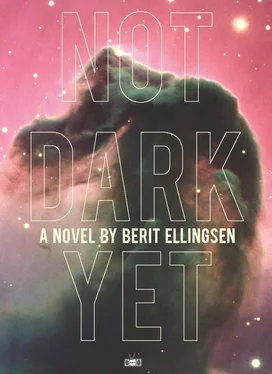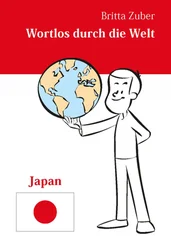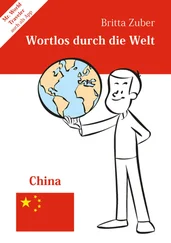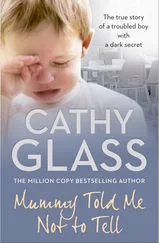Daylight lingered for much longer than in the depths of winter, but the milky sky remained opaque and dusk arrived as a jaundiced glow above the rooftops. This far into the residential area the streets were named and the houses numbered, enabling him to find the address he had memorized.
The house was identical to all the others: peach-colored, gabled roof, Palladian window, double garage. In the modestly sized garden, instant lawn had been laid out, some rolls only half way or still constricted by plastic string. A small pool yawned in concrete, holding no water, only sand, pieces of greasy plywood, and brown and yellow leaves. The house looked finished, but the one behind it had all its windows broken, dark shards gleaming in the patchy lawn. Past that structure torn tarpaulin was whipping in the wind, like prayer flags above a desolate mountain pass.
The white six-paneled, brass-handled front door was unlocked and led into a spacious hall lit only by the fading illumination from outside. The floor was tiled with textured, honey-colored ceramic rectangles and the walls painted a standard eggshell shade. The interior was new and unused, but dust had settled on every surface, like snow, and the stale, musty air signaled that the house had skipped past habitation on its way to dereliction. Every single house for at least a kilometer in all directions was as empty and abandoned as this. It was like being in a desert.
In the back of the hall a door-less opening and a short flight of stairs led down to the basement. Here, walls and floor-covering were in place, but had not been spackled or painted. Like the rest of the house the basement had already acquired the tang of decay. A single light bulb illuminated the subterranean space and he was not surprised to find Kaye, dressed in a thick down parka, waiting for him there.
Standing over Kaye’s plans, which were laid out on a table improvised from a piece of drywall on two fuzzy sawhorses, they looked like new homeowners trying to agree on which task to tackle first. But their business was less constructive and required much more care.
“You’re a bit late to join in the preparations,” Kaye said, “but with your prior experience I’m certain you’ll manage to keep up.”
Kaye told him everything, and he confirmed that he had retained the information by reciting it from memory. During his brief narration of the story Kaye desired, the assistant professor nodded approvingly, as if he were listening to a graduate student verifying observations or recounting a long-established theorem, something that had already become reality.
He glanced at Kaye and although he imagined that his horror must be fully visible on his face, the assistant professor said nothing. Kaye only met his eyes calmly, as if he knew, as if any resentment was safe with him, inside their now mutual, monumental secret.
Finally, Kaye handed him a new mobile phone and told him not to use it, only to keep it on and charged, and remain ready for the call that would come “in a matter of days.” Then the assistant professor lifted a dark leather bag onto the makeshift table and zipped it open. It had been years since he’d smelled the scent of oil and propellant which rose from the glistening, disassembled object inside, yet he recognized it instantly.
“This is yours,” Kaye said. “We will most certainly need it, so take good care of it.”
He stood numb, his thoughts a tangle, his worst fears having been confirmed all at once, and with it the vertiginous knowledge that the outcome he had tried so hard to avoid had finally caught up with him.
Kaye looked at him. “The others and I respect you immensely,” the assistant professor said. “We asked you to join us because we trust you and want you here. We, I, want you with us.” Kaye put his arm around him. “We’re all together in this. All right?”
“Yes,” he said, but could not meet Kaye’s eyes.
HE CARRIED THE BAG FROM KAYE WITH HIM BACK to the center of the unfamiliar northern city, the weight of its contents as familiar as that of a lover sleeping on his arm. He considered not opening the bag, not looking at the object inside, not cleaning it, not testing it, since he didn’t wish to use it. But then he thought of how, if he refused to familiarize himself with the gift, it might be him missing and the other person aiming true instead, and something in him was too proud to let that happen because of something as stupid as misguided reluctance.
Back in the city center he withdrew money from a cash machine, bought a case of self-heating field rations and packets of liquid energy gel, hired a car with a hybrid engine under an assumed name, and drove in the direction he had first arrived in. He had spotted the place from the train and taken note of it, knowing what Kaye wanted. After a brief search in the forest-filled darkness he pulled into the parking lot and stopped the car, checked that all the windows were up and the doors locked, before he lowered the driver’s seat as far as it would go and went to sleep.
During the night, he woke several times, turning in the cold, pulling the coat tighter around himself. The last time was at dawn, when a gray mist rolled in between the trunks of the slim, ancient-looking firs that stood in front of the car. The fog pulled his gaze in, capturing his attention completely, and then it was like he could see the entire forest, row upon row of firs all the way back to the first tree. His pulse beat slowly in his ears, but behind it hummed a silence that engulfed him. He fell into a deep sleep and didn’t wake till it was nearly midday.
Only a few other vehicles occupied the parking lot, a gravel-covered rectangle overlooking the narrow but fast-flowing river that wound through the valley. It was known as a great place for trout fishing, and he half expected to see fly fishers casting their lines on the banks, but there were none. He got out, locked the car, yawned and stretched, and walked to the edge of the gravel. The day was windless, but a fine rain hung like a curtain in the air. In the middle of the river was a small shrub-covered islet and a few boulders downstream. On both banks the remains of small birches and bird cherry trees leaned over the water, whose surface was smooth and glassy, even from where he stood. The vegetation on the bottom of the river looked like green hair that streamed and fluttered with the current. On the bank below the parking lot stood the red and yellow posters he had spotted from the train.
He took the bag carefully out of the trunk and crunched across the gravel to the steel-paneled building on the other side of the rural road. Inside the entrance a teen in thick coveralls and boots sat behind a fold-out plastic table with a red steel box and a school textbook open in front of him.
“Member or non-member?” the boy said.
“Non-member,” he said.
“We’re offering a discount on yearly memberships,” the boy started, barely looking up from the book. “It gives better hourly rates…”
“That won’t be necessary,” he said. “I only need access for today.”
The boy nodded. “Want to buy ammunition?”
“No, but I’d like to borrow ear protection and sandbags, if you have them.”
“We have good muffs and bags,” the boy said. “They’re right inside.”
“Thank you,” he said.
The boy mentioned a small sum of money. He handed the boy a note, told him to keep the remainder, then strode past him and into the building.
A wooden deck shielded by a strip of moss-thatched roof looked out on a wide field of short grass and circular targets. He walked to the end of the gallery, past the few people who were already there, hunched down, and opened the bag. The smell of oil and metal rose from it and mixed with those of his surroundings: gunpowder, wood varnish, moist grass, and rain. He took out the cleaning kit and inspected its brushes, rod, screwdrivers, and cleaning solution for the first time.
Читать дальше












